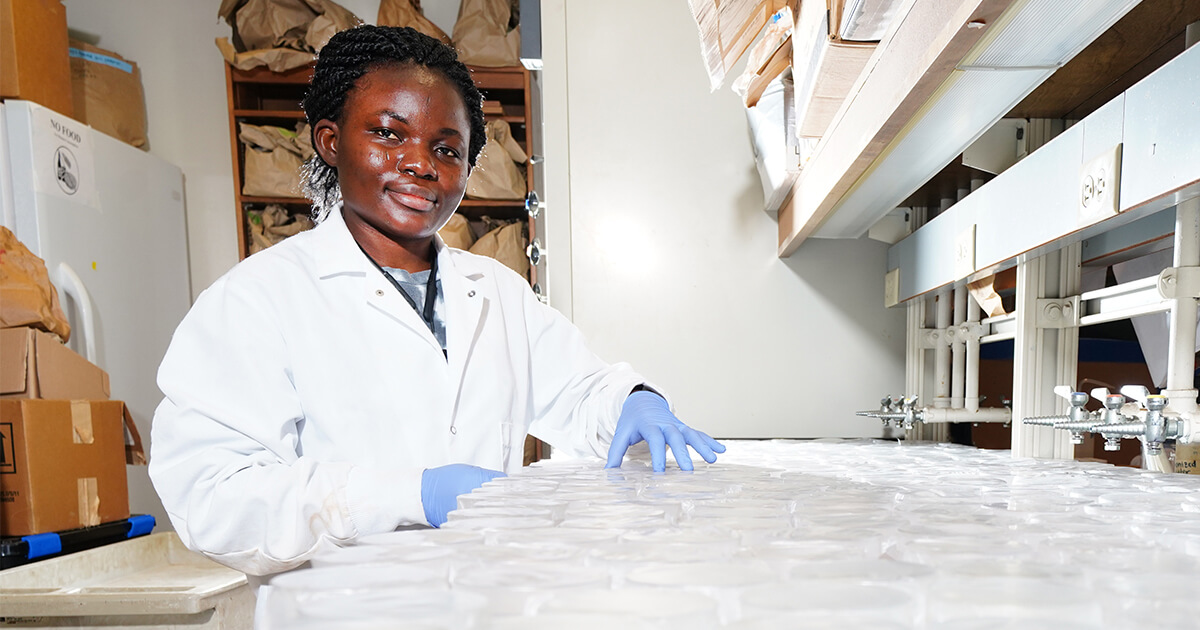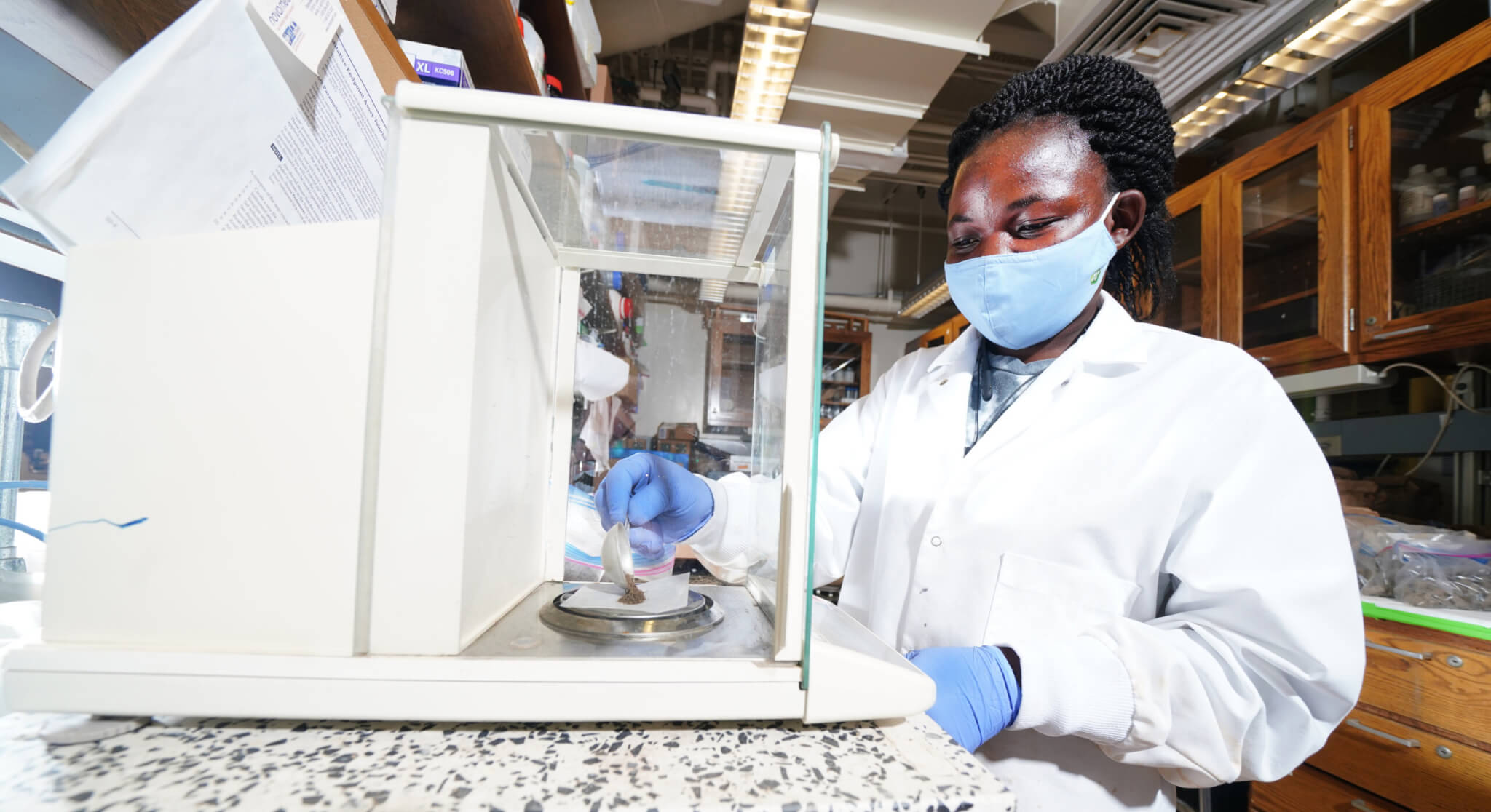Student’s research looks for answers at Purdue to questions raised at home in Nigeria
Adebukola Dada grew up on a Nigerian farm where her father raised various plants and animals. “If our crops did not do well, I asked my dad to tell me why,” Dada recalled. “That’s up to you to figure out,” her father replied. Now a Ph.D. student in agronomy, Dada is on her way to finding the answers.
Dada originally planned to become a doctor. While she waited for an opportunity to transfer into the school of medicine at Olabisi Onabanjo University, Dada studied soil science. “By the time I could have switched to medicine, I was already in love with agriculture,” Dada recalled.
“What was most interesting to me was increasing phosphorus availability in the soil because ours were deficient.”
Because of her inquisitive nature, Dada’s advisor suggested she pursue graduate education. Dada earned a master’s degree at the University of Ibadan in Nigeria. There, she was encouraged to continue her studies of phosphorus through a doctoral program. Dada received a scholarship to study abroad from a Nigerian federal agency and wrote to Purdue as a potential destination.
Shalamar Armstrong, assistant professor of agronomy, responded to Dada’s inquiry. Dada found his research in soil conservation and management intriguing and began work under Armstrong’s guidance in 2017.
With Armstrong, Dada has continued her research of phosphorus in soil. “If I learn how to reduce phosphorus here, I’ll know how to increase its availability back home in Nigeria,” she explained.
Dada now looks at ways popular cover crops in the Midwest affect phosphorus release and loss from the soil.
“Our cover crops are said to be doing more harm than good when it comes to phosphorus, but this statement is too general and misleading because not all species increase losses,” clarified Dada.
The long-term goal of Dada’s research is to identify cover crops that could lower the amount of phosphorus entering freshwater systems from agricultural fields. That knowledge could help farmers maximize the nutrients their crops release and let them reduce the volume of phosphorus fertilizers they add to their soil.
“If we can find cheap cover crop species that will both reduce phosphorus losses from the soil and still protect it, I would be very glad to be part of that,” said Dada.
Her research earned the agronomy department’s Joe L. White Graduate Student Award in Soil Chemistry and Mineralogy in 2019.
Dada plans to finish her Ph.D. in spring 2021 and consider an academic position. “I would love to pass my knowledge on, to mentor young people and teach them conservation practices.”







